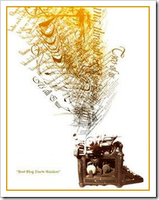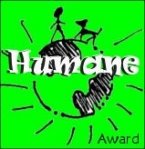History of Easter
According to the New Testament, Christ was crucified on the eve of Passover and shortly afterward rose from the dead. In consequence, the Easter festival commemorated Christ's resurrection.
In time, a serious difference over the date of the Easter festival arose among Christians. Those of Jewish origin celebrated the resurrection immediately following the Passover festival, which, according to their Babylonian lunar calendar, fell on the evening of the full moon (the 14th day in the month of Nisan, the first month of the year). By their reckoning, Easter, from year to year, fell on different days of the week.
Christians of Gentile origin, however, wished to commemorate the resurrection on the first day of the week, Sunday; by their method, Easter occurred on the same day of the week, but from year to year it fell on different dates. An important historical result of the difference in reckoning the date of Easter was that the Christian churches in the East, which were closer to the birthplace of the new religion and in which old traditions were strong, observed Easter according to the date of the Passover festival. The churches of the West, descendants of Greco-Roman civilization, celebrated Easter on a Sunday.
Early Dating Methods
The Council of Nicaea also decided that the calendar date of Easter was to be calculated at Alexandria, then the principal astronomical center of the world. The accurate determination of the date, however, proved an impossible task in view of the limited knowledge of the 4th-century world. The principal astronomical problem involved was the discrepancy, called the epact, between the solar year and the lunar year. The chief calendric problem was a gradually increasing discrepancy between the true astronomical year and the Julian calendar then in use.
Later Dating Methods
Ways of fixing the date of the feast tried by the church proved unsatisfactory, and Easter was celebrated on different dates in different parts of the world. In 387, for example, the dates of Easter in France and Egypt were 35 days apart. About 465, the church adopted a system of calculation proposed by the astronomer Victorinus (fl. 5th cent.), who had been commissioned by Pope Hilarius (r. 461–68) to reform the calendar and fix the date of Easter. Elements of his method are still in use. Refusal of the British and Celtic Christian churches to adopt the proposed changes led to a bitter dispute between them and Rome in the 7th century.
Reform of the Julian calendar in 1582 by Pope Gregory XIII, through adoption of the Gregorian calendar, eliminated much of the difficulty in fixing the date of Easter and in arranging the ecclesiastical year; since 1752, when the Gregorian calendar was also adopted in Great Britain and Ireland, Easter has been celebrated on the same day in the Western part of the Christian world. The Eastern churches, however, which did not adopt the Gregorian calendar, commemorate Easter on a Sunday either preceding or following the date observed in the West. Occasionally the dates coincide; the most recent times were in 1865 and 1963.
Because the Easter holiday affects a varied number of secular affairs in many countries, it has long been urged as a matter of convenience that the movable dates of the festival be either narrowed in range or replaced by a fixed date in the manner of Christmas. In 1923 the problem was referred to the Holy See, which has found no canonical objection to the proposed reform. In 1928 the British Parliament enacted a measure allowing the Church of England to commemorate Easter on the first Sunday after the second Saturday in April. Despite these steps toward reform, Easter continues to be a movable feast.
Christian Origins
Easter is the annual festival commemorating the resurrection of Jesus Christ, and the principal feast of the Christian year. It is celebrated on a Sunday on varying dates between March 22 and April 25 and is therefore called a movable feast. The dates of several other ecclesiastical festivals, extending over a period between Septuagesima Sunday (the ninth Sunday before Easter) and the first Sunday of Advent, are fixed in relation to the date of Easter.
25 and is therefore called a movable feast. The dates of several other ecclesiastical festivals, extending over a period between Septuagesima Sunday (the ninth Sunday before Easter) and the first Sunday of Advent, are fixed in relation to the date of Easter.
Connected with the observance of Easter are the 40-day penitential season of Lent, beginning on Ash Wednesday and concluding at midnight on Holy Saturday, the day before Easter Sunday; Holy Week, commencing on Palm Sunday, including Good Friday, the day of the crucifixion, and terminating with Holy Saturday; and the Octave of Easter, extending from Easter Sunday through the following Sunday. During the Octave of Easter in early Christian times, the newly baptized wore white garments, white being the liturgical color of Easter and signifying light, purity, and joy.
The Christian festival of Easter probably embodies a number of converging traditions; most scholars emphasize the original relation of Easter to the Jewish festival of Passover, or Pesach, from which is derived Pasch, another name for Easter. The early Christians, many of whom were of Jewish origin, were brought up in the Hebrew tradition and regarded Easter as a new feature of the Passover festival, a commemoration of the advent of the Messiah as foretold by the prophets.
Easter Symbols
Eastre (or "Ostara"), the Anglo-Saxon Teutonic goddess of spring and fertility was often accompanied by a hare when represented. The fertile nature of rabbits and hares is another symbol of new life and the rebirth that occurs during the spring season.
Also, German settlers in America are said to have brought over the tradition of a bunny named "Oschter Haws" who would visit houses on Easter eve, leaving colored eggs for children. Easter eggs were painted different colors to represent the sunlight of spring. Christians later used eggs to symbolize the rebirth of Christ.
Another Easter tradition is the eating of Hot Cross Buns. These cakes were marked by the Saxons to honor Eastre, the fertility goddess. The crosses on the buns are said to represent the moon's quarters, while Christians see the cross as a reference to the crucifixion.
Modified from the Funk & Wagnalls New Encyclopedia.
Christmas Ideas For Women – Holiday Gift Guide
5 weeks ago


























0 cherished words:
Post a Comment